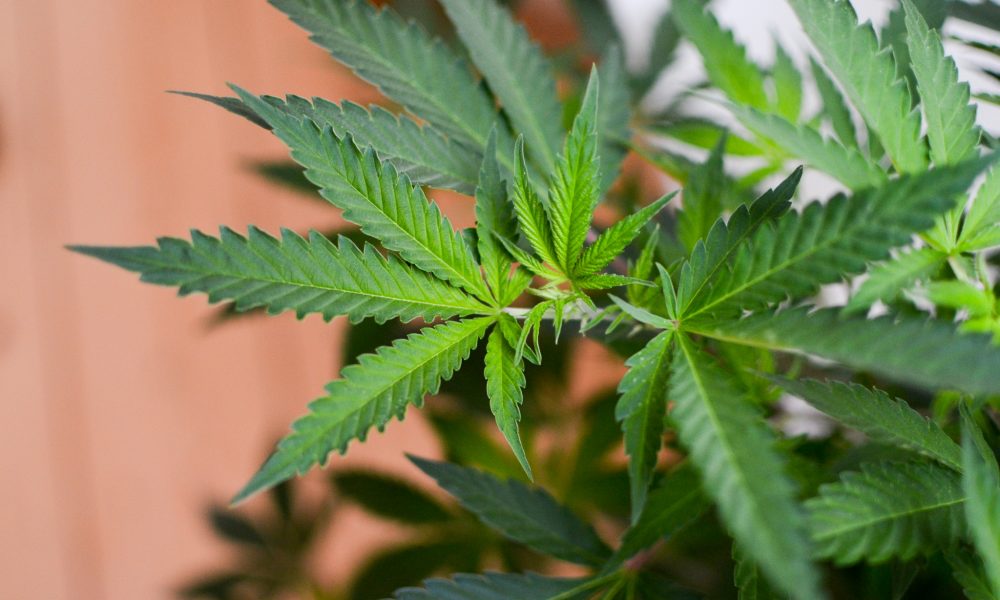Bipartisan Ohio lawmakers have filed a new bill to legalize marijuana, offering the legislature an opportunity to take the lead on reform as an activist campaign works to place a reform initiative on the November ballot.
Reps. Jamie Callender (R) and Casey Weinstein (D) introduced the Ohio Adult Use Act, combining and refining prior legalization proposals that the lawmakers pursued last session on a separate partisan basis.
The bill would allow adults 21 and older to purchase and possess up to 50 grams of cannabis and cultivate up to six plants, only three of which could be mature at one time, for personal use.
People with certain prior marijuana possession and cultivation convictions on their records would be able to petition the courts for expungement.
Marijuana products would be subject to a 10 percent tax, with revenue earmarked for K-12 public education, localities that permit dispensaries to operate in their area, substance misuse treatment, law enforcement efforts to combat illegal drug trafficking and the state general fund.
“We’re really at risk of Ohio falling behind. I’d argue Ohio has already fallen behind our neighboring states, and, frankly, where the public is on this issue,” Weinstein told Marijuana Moment in a phone interview on Wednesday. “It’s not a political issue. The public is just there. It’s time for us to move forward.”
Regional dynamics are one factor that could help advance the issue in the conservative Ohio legislature, with nearby states like Illinois and Michigan having already enacted legalization and Minnesota on the cusp of ending prohibition following the legislature’s passage of a reform measure this month. Bipartisan senators next door in Ohio also recently announced they will be teaming up on a cannabis legalization bill.
But another key consideration for legislators in the Buckeye State is whether they want to approach legalization through the legislative process or have voters decide on the issue this year. A campaign to secure placement on the November ballot is actively in the process of gathering remaining signatures after lawmakers declined to take an opportunity to pass legalization in the first months of the 2023 session.
“Nothing motivates the legislature quite like a ballot initiative,” Weinstein said. “I’d rather do this via legislation—the scalpel of legislation versus the sledgehammer of the ballot—but either way, it’s time is coming.”
He added that the prospects of a ballot measure is “an absolute motivator in terms of doing things via legislation and compromise—and allowing hearings and citizen input and letting it go through that deliberate process. Hopefully that motivates my colleagues to move.”
Under the newly filed legislation, the state’s existing Medical Marijuana Control Program would be expanded to cover both medical and recreational markets. It would be renamed the Division of Marijuana Control and fall under the Ohio Department of Commerce.
“Through the expansion of Ohio’s successful Medical Marijuana program to all Ohioans, we will not only be building upon best practices from around the country but utilizing the lessons learned here in Ohio,” Callender said in a press release. “With the nation increasingly heading towards the de-scheduling of cannabis products at the federal level, Ohio has an opportunity to get ahead of the curve in developing its cannabis industry.”
Callender, who sponsored a separate bill to tax and regulate cannabis in 2021, previously cast doubts on the prospects of legislative reform, signaling that he felt the issue would ultimately need to be decided by voters given the recalcitrance of the legislature.
The lawmakers’ new bill has been referred to the House Finance Committee, which held a hearing on both sponsors’ earlier measures late last year.
—
Marijuana Moment is tracking more than 1,000 cannabis, psychedelics and drug policy bills in state legislatures and Congress this year. Patreon supporters pledging at least $25/month get access to our interactive maps, charts and hearing calendar so they don’t miss any developments.![]()
Learn more about our marijuana bill tracker and become a supporter on Patreon to get access.
—
Ohioans have made clear that they’re ready for a policy change during elections in multiple recent cycles. To date, more than three dozen Ohio localities have enacted decriminalization through the local ballot.
Last November, for example, voters five more cities approved local marijuana decriminalization ballot initiatives. And during a primary election this month, voters in Helena similarly enacted the reform.
Lawmakers might have given up the chance to legislatively tackle adult-use marijuana legalization before this month’s deadline, but the conservative legislature has been considering major overhauls to the state’s medical cannabis program this session.
Also, Gov. Mike DeWine (R) signed a major criminal justice reform bill in January that will let cities facilitate mass expungements for people with certain drug-related convictions, including marijuana possession of up to 200 grams.
After the law took effect, the mayor of Cleveland said in April that the city will be moving forward with plans to seal thousands of cannabis records.
Where Presidential Candidate Donald Trump Stands On Marijuana
Photo courtesy of Philip Steffan.
Read the full article here

